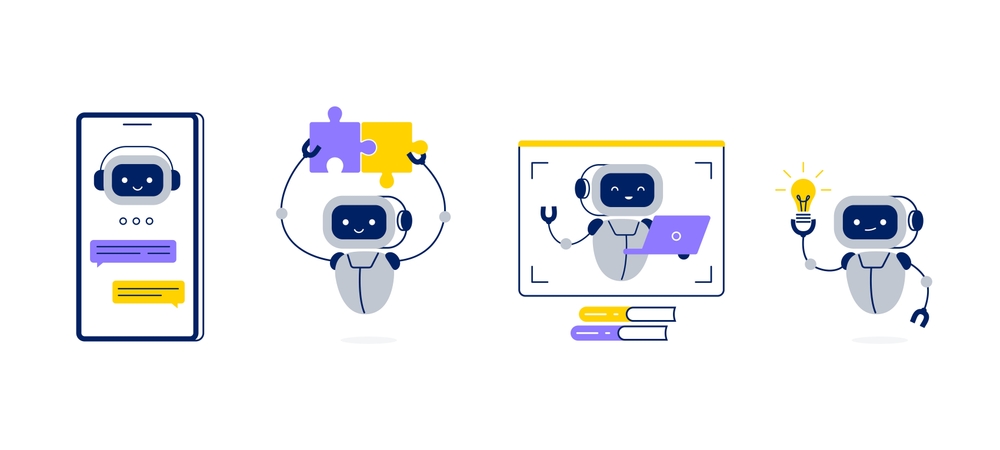Artificial intelligence (AI) is transforming the digital world, and mobile applications are at the forefront of this revolution. From chatbots to personalized recommendations, AI-powered apps are no longer futuristic—they are a necessity. Integrating AI into mobile applications enhances user experiences, streamlines processes, and gives businesses a competitive edge.
This blog explores the rise of AI-powered apps and provides a guide on how to integrate AI seamlessly into your mobile application.
Why Are AI-Powered Apps Rising?
The demand for smarter, more intuitive apps is driving the adoption of AI in mobile development. Here are a few reasons behind this trend:
- Improved User Experience
AI offers personalized experiences tailored to individual user preferences. For instance, streaming platforms like Netflix use AI to suggest shows based on viewing history. - Automation
Tasks like data entry, email responses, and appointment scheduling can now be automated, thanks to AI. This not only saves time but also reduces human error. - Better Decision-Making
AI-powered apps can analyze vast amounts of data in real time, helping users make informed decisions. For example, finance apps use AI to provide budgeting insights. - Natural Language Processing (NLP)
Apps integrated with NLP, such as virtual assistants like Siri or Alexa, make interactions more conversational and user-friendly. - Enhanced Security
AI-driven security features like facial recognition and behavior analysis ensure user data remains protected.
Steps to Integrate AI Seamlessly into Your Mobile App
If you’re considering adding AI to your mobile app, it’s essential to do it right. Below are steps to ensure seamless integration:
1. Understand Your App’s Goals
Before implementing AI, define the specific problem it will solve. For example, do you want to improve customer support, enable predictive analytics, or enhance personalization?
2. Choose the Right AI Tools and Frameworks
There are various AI tools available, such as TensorFlow, IBM Watson, and Microsoft Azure AI. Select one that aligns with your app’s requirements.
- TensorFlow: Ideal for machine learning and deep learning tasks.
- IBM Watson: Known for its natural language processing capabilities.
- Azure AI: Great for integrating AI with cloud-based apps.
3. Prepare Your Data
Data is the backbone of any AI system. Ensure your data is clean, relevant, and well-organized. AI algorithms need quality data to deliver accurate results.
4. Implement AI Features Gradually
Instead of overhauling your entire app, start by integrating one or two AI features. For example:
- Add a chatbot for customer support.
- Include recommendation engines for e-commerce apps.
- Implement voice search for easier navigation.
5. Focus on User Experience
AI should enhance, not complicate, the user experience. Ensure the AI features are intuitive and easy to use. Test your app thoroughly to identify potential roadblocks.
6. Leverage APIs
Using pre-built AI APIs can save development time and resources. APIs like Google Cloud Vision or Amazon Rekognition can be integrated into your app for image recognition, text analysis, and more.
7. Ensure Scalability
As your app grows, so will its data and AI requirements. Plan for scalability by using cloud-based solutions to manage increased workloads.
8. Prioritize Security and Privacy
AI deals with sensitive user data, so robust security measures are non-negotiable. Comply with data protection regulations and implement encryption for data storage and transfer.
Popular Use Cases of AI in Mobile Apps
Here are some examples of how AI is being used in mobile apps across industries:
1. E-commerce Apps
- Personalized product recommendations.
- Chatbots for customer inquiries.
- Fraud detection in online transactions.
2. Healthcare Apps
- Symptom checkers powered by AI.
- Virtual health assistants for patient care.
- Predictive analytics for early disease detection.
3. Education Apps
- Adaptive learning systems.
- AI-driven grading and assessment.
- Language learning with speech recognition.
4. Travel Apps
- AI-based itinerary planning.
- Language translation features.
- Predictive pricing for flights and hotels.
5. Entertainment Apps
- Personalized playlists in music apps.
- Content recommendations in video streaming apps.
- AI-generated artwork or music.
Benefits of Integrating AI into Mobile Apps
- Increased Engagement
AI features like personalized notifications and recommendations keep users engaged and improve app retention rates. - Higher Revenue Potential
Features such as AI-driven ads or predictive buying can boost revenue streams for app developers. - Time and Cost Savings
Automating repetitive tasks reduces operational costs and allows your team to focus on innovation. - Competitive Advantage
Incorporating AI sets your app apart in a crowded marketplace, attracting tech-savvy users.
Challenges and Solutions in AI Integration
1. High Initial Costs
Solution: Start small by implementing basic AI features and scale up as your budget allows.
2. Data Privacy Concerns
Solution: Be transparent about data usage and comply with GDPR or other relevant regulations.
3. Complexity of AI Models
Solution: Work with experienced software development teams to simplify implementation.
Conclusion
The rise of AI-powered apps is undeniable, and businesses that leverage this technology are staying ahead in the digital race. By understanding your app’s needs, choosing the right tools, and focusing on user experience, you can integrate AI seamlessly into your mobile application.
If you’re ready to transform your app with AI, consult experienced developers who specialize in software development. AI isn’t just a feature—it’s the future of innovation.
For businesses looking to create impactful AI-powered apps, investing in mobile app development services is the first step toward success.
